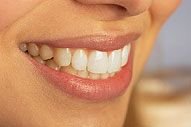The pits and grooves of your teeth are prime areas for opportunistic decay. Even regular brushing sometimes misses some of these intricate structures on the chewing surfaces of your teeth. Enter sealants, which are thin coatings applied to the chewing surfaces designed to prevent the intrusion of
Read more
 Overview
Overview
People choose esthetic dental procedures/surgery for various reasons—to repair a defect such as a malformed bite or crooked teeth, treat an injury, or just improve their overall appearance. Whatever the reason, the ultimate goal is to restore a beautiful smile.
For these and many other reasons, esthetic dentistry has become a vital and important part of the dental profession.
Common esthetic dental procedures can be performed to correct misshaped, discolored, chipped or missing teeth. They also can be used to change the overall shape of teeth—from teeth that are too long or short, have gaps, or simply need to be reshaped.
Some of the more common procedures involve:
- Bonding - A procedure in which tooth-colored material is used to close gaps or change tooth color.
- Contouring and reshaping - A procedure that straightens crooked, chipped, cracked or overlapping teeth.
- Veneers - A procedure in which ultra-thin coatings are placed over the front teeth. Veneers can change the color or shape of your teeth. For example, veneers have been used to correct unevenly spaced, crooked, chipped, oddly shaped or discolored teeth.
- Whitening and bleaching - As the term implies, whitening and bleaching, a rapidly increasing procedure, are used to make teeth whiter.
Which techniques should be used to improve your smile? A dental exam will take many factors into consideration, including your overall oral health.
-
Sealants
Category: Treatment
-
Fluoride Facts
Category: Tooth Care
For decades, fluoride has been held in high regard by the dental community as an important mineral that is absorbed into and strengthens tooth enamel, thereby helping to prevent decay of tooth structures. In nearly every U.S. community, public drinking supplies are supplemented with sodium fluoride
Read more -
Cavities and Tooth Decay
Category: Dental Problems
What Is Tooth Decay? Tooth decay is caused by a variety of things; in medical terms, cavities are called caries, which are caused by long-term destructive forces acting on tooth structures such as enamel and the tooth's inner dentin material. These destructive forces include frequent exposure to
Read more -
Missing Teeth
Category: Treatment
Fixed bridges and implants are often used to replace missing teeth and to correct some kinds of bite problems. Crowns and bridges are the most effective procedure for replacing missing teeth or bite problems.
Read more -
Dentures
Category: Treatment
A denture is a removable replacement for missing teeth and adjacent tissues. It is made of acrylic resin, sometimes in combination with various metals. Types of dentures Complete dentures replace all the teeth, while a partial denture fills in the spaces created by missing teeth and prevents
Read more -
Air Abrasion
Category: Pain Management
Many people associate the high-pitched whirring of a dental drill with pain. Just the sound alone can make many people wince. A relatively new technique called air abrasion uses powerful particles of aluminum oxide to remove debris and decay. The most exciting thing for patients is that air abrasion
Read more -
Canker/Cold Sores
Category: Dental Problems
People sometimes confuse canker sores and cold sores, but they are completely unrelated. Both can be painful, but knowing the differences can help you keep them in check. A canker sore is typically one that occurs on the delicate tissues inside your mouth. It is usually light-colored at its base and
Read more -
Fluoride
Category: Oral Health Topics
For decades, fluoride has been held in high regard by the dental community as an important mineral that strengthens tooth enamel, which thereby helps to prevent decay of tooth structures. Water fluoridation is endorsed by nearly every major health and safety-related organization in the world. Communities
Read more -
Denture Care
Category: Tooth Care
Dentures today are made from very advanced materials designed to give you a natural appearance. However, keep in mind that just like your teeth, dentures should be cared for with the same diligence. This means daily brushing and regular visits to your dentist. Regular visits to your dentist are
Read more -
Age and Oral Health
Category: Oral Health Topics
Oral changes with age Is tooth loss inevitable in your later years? How much should adults be concerned about cavities? Here you will find helpful answers to some frequently asked questions about oral health questions you may have as you get older. National survey reveals baby boomers miss
Read more -
Abscessed Tooth
Category: Dental Problems
Treatment of an abscessed tooth An abscessed tooth is a pocket of pus, usually caused by some kind of infection and the spread of bacteria from the root of the tooth to the tissue just below or near the tooth. In general, a tooth that has become abscessed is one whose underlying pulp (the tooth's
Read more
Contact Us
Send Us an Email
Our Location
Find us on the map
Office Hours
Our Regular Schedule
Monday:
7:00 am-2:00 pm
Tuesday:
7:00 am-2:00 pm
Wednesday:
7:00 am-2:00 pm
Thursday:
7:00 am-2:00 pm
Friday:
Closed
Saturday:
Closed
Sunday:
Closed
